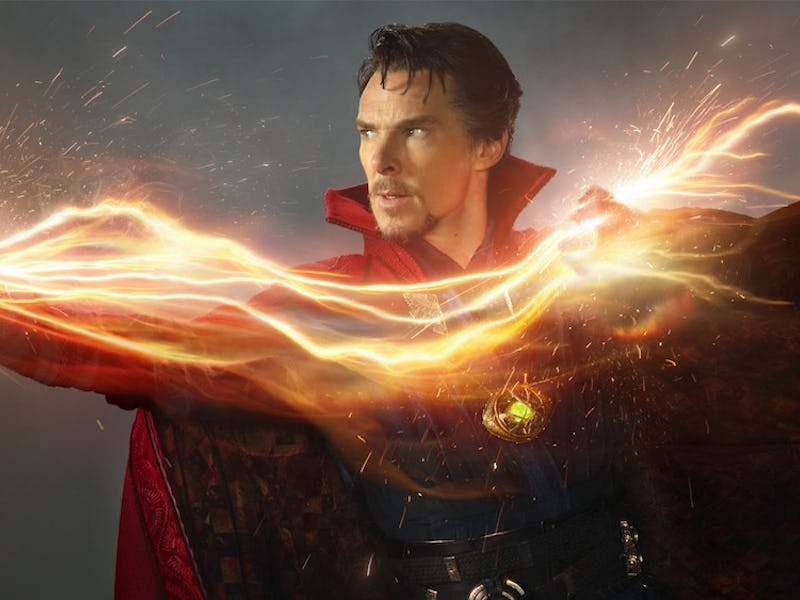Marvel's Recycling Isn't Sustainable
But the honeymoon phase won't last for long.

If you walked out of Dr. Strange thinking that the titular character felt familiar, that’s probably because you’d seen the blueprint for him in 2008’s Iron Man, a film about a brilliant, rich, and quippy man taking on global responsibilities after falling victim to his own hubris. Stephen Strange and Tony Stark share an unwavering belief that they are the smartest person in the room and exceedingly expensive taste in fast cars. Their extraordinary capacity and arrogance alienate others, but goodness lies behind their bad facial hair.
The reason you’re seeing double is that Marvel Studios has been successful for long enough that its executives can look to their own Phase One origin stories for inspiration. Grafting an older character’s traits onto a younger British actor doesn’t make sense five years into the construction of a universe. It does make sense ten years on as Iron Man rusts his way into retirement. Dr. Strange opened with an $84.98 million weekend, and was Marvels 14th consecutive movie to open in the top spot at the box office. With an origin story that outperformed both Captain America: First Avenger ($65.05 million) and Thor ($65.72 million), Marvel will likely surgically remove at least two sequels from its new mystic.
But success occurs in context and Dr. Strange fell a cool $11 million shy of 2008’s Iron Man, which opened to $96.61 million its first weekend at the box office. While Dr. Strange certainly isn’t a flop, the revenue gap between it and Iron Man suggests that there are diminishing returns to slapping a bad American accent on the same wire frame. Iron Man 2 and Iron Man 3 went on to do $128.12 million and $174.14 million over their respective opening weekends. If the Dr. Strange sequels are expected to reach the same heights, audiences will need something more to connect with than Benedict Cumberbatch’s Robert Downey Jr. impression. So why not just make Iron Man 4 instead of the first Dr. Strange if the general outline of a self-sabotaging, yet lovable asshole has proven itself a hit?
Downey, Marvels current reigning king of snark, is already 51 and has roughly a decade before he ages out of an action hero role. He’s also the highest paid actor in the MCU with no solo movies on deck after contract negotiations. Downey reportedly earned $40 million for his appearance in Captain America: Civil War, a movie that cost $250 million to make. Benedict Cumberbatch, on the other hand, is eleven years Downey’s junior and is considerably less expensive, being most well known for the tv adaptation Sherlock rather than as a bona fide Hollywood movie star.
But even if Cumberbatch could deliver his stilted lines with the same improvised ease as Downey, Marvel’s diminishing narrative returns would likely lead to diminished box office returns. Though the narrative forms of both origin stories are nearly identical, minor character differences — like an inability to establish friendships with other character — have huge effects on longer narrative arcs. They can make a good character into a studio’s main financial villain.
There is also this: Movies produced at this stage of Marvel’s evolution have to satisfy the audience’s now ingrained expectation of bigger, badder action sequences and the infinitely more detailed visual world-building that they’ve come to expect with each subsequent entry into the MCU. Each movie carved out to launch a new character (the slate extends at least to 2028) has to compete with visual blockbusters like the space-faring team movie Guardians of the Galaxy, while also spending precious screen time tying together the threads between the hero and the broader MCU. No origin story will ever have as much time for character development as Iron Man, with its long scenes of Downey improvising to the camera.
Ultimately, Dr. Strange sacrificed the emotional depth of Iron Man for trippy astral plane projections and yet another giant face in the sky. Stephen Strange is Tony Stark without the character development.